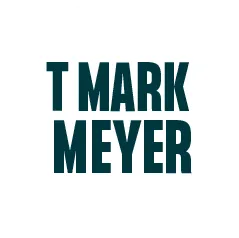
Authentic Leadership Choices: Overcoming More of Your Double Standards
In the last leadership newsletter, we looked at how we sometimes maintain a double standard between the values we live by in our private lives and the those we bring to work. It seems that the principles we live by from 9 to 5 are somehow different from the ones that govern our lives the rest of the day. We also discussed the benefits of bringing your personal values into play in the professional setting. If you haven’t read the first newsletter, I suggest you do so now.

Contradictions of Workplace Dynamics 🤼♂️
Interestingly, these double standards also apply within the working environment. For example, we might expect our team to be loyal, committed, and protect our intellectual property rights on one hand, but on the other, we might attempt to poach employees from our competitors in order to gain inside information. We're prepared to do anything FOR our company and at the same time do anything TO our competitor. It’s another double standard, much like to the one between work and private life. Yet most of us do not really feel guilty about it.
The Psychology Behind It: How Conscience Plays its Part 🧠
The reason for this lies in the way our conscience operates. But first, a small disclaimer: The following description is a simplified one. If you want deeper insight into how our conscience works, I recommend heading to Amazon and picking up my book, "The Art of Being Authentic."
Contrary to popular belief, our conscience is not a fully dedicated universal compass for what is right and wrong. In reality, it’s much more concerned with fitting in. If we start breaking bonds and cease fitting in, our conscience will start regulating our sense of guilt. It’s a survival mechanism deeply wired within us to ensure we do not end up alone.
Our conscience need for fitting in also means it comes with a built-in double standard. If everyone is doing something 'bad' and nobody expresses remorse, I likely won't feel guilty either. Conversely, if everyone is doing something 'bad' and I wish to do right, I may start feeling guilty. This dynamic also explains why you might do anything FOR your company and at the same time do anything TO your competitor. Doing anything for your company helps you fit in, and acting against your competitor also helps you fit in. It's risk-free for your conscience, which does not care if you sever ties with your competitor, as they're not part of your group
No wonder it's easier said than done to put your personal values forward at work.
However, we also have a part of our conscience that tells us what is authentic for us, what feels right. This is the part that prompts you to take strong personal values like empathy and bring them to work. It encourages you to stop worrying about fitting in and start caring about what is right.
When A Boardroom Decision Reflected Personal Values 👔
Take for example an experience I had while sitting on a board of directors as the CEO. The Chairman of the Board, who also happened to be the majority shareholder, found himself at odds with the management of the company, who were minority shareholders. We were discussing a critical decision, and as the debate progressed, it became clear that the Chairman and the management had very different views on the matter.
In the thick of what seemed like a never ending discussion, I as the CEO, representing the management, turned to the Chairman and said, "You hold the majority, so just tell us to do it the way you want it done." The room fell silent, awaiting the Chairman's response. The Chairman surprised everyone with his reply. He said, "No, I want us to find a solution we can all agree on. I will not decide on something you disagree with."
His words had a profound impact on everyone present. Here was the most powerful individual in the room, someone who could easily get his way, choosing instead to prioritize consensus and mutual agreement over his personal preference.
This action was a powerful demonstration of his personal values of respect and collaboration. It went against the grain of typical power dynamics and left a lasting impression on me and the rest of the management team.
This Chairman's decision to 'stand out' created a culture of respect and mutual agreement and the board meetings were never the same since. His authentic leadership style reinforced that personal values don't just belong at home but can, and should, be a part of our professional lives.
The Power of Choice: Fit in or Stand Out? 🌟
So, my questions to you are: Do you want your brand to fit in or stand out? Do you want your company to fit in or stand out? If you want your brand, your company to stand out, then it starts with you. You must have the courage to stop fitting in and start standing out. You must start to apply your personal values professionally.
Tangible Tip - The Fear Behind Expressing Values 💡
If you feel afraid of expressing your personal values in the work place recognize that this feeling is most likely guilt from your conscience masking itself as fear. That it comes from your conscience, does not necessarily mean it is wrong. It can just be a fear of not fitting in that your conscience is alerting you to. Imagine that expressing your personal values will be met with positivity by your surroundings. If it feels right then, then go for it!

